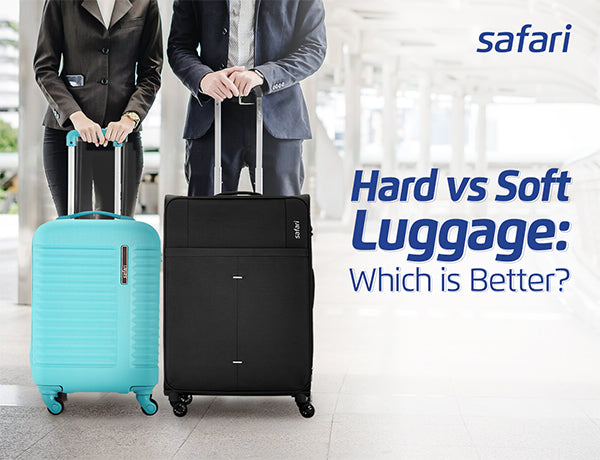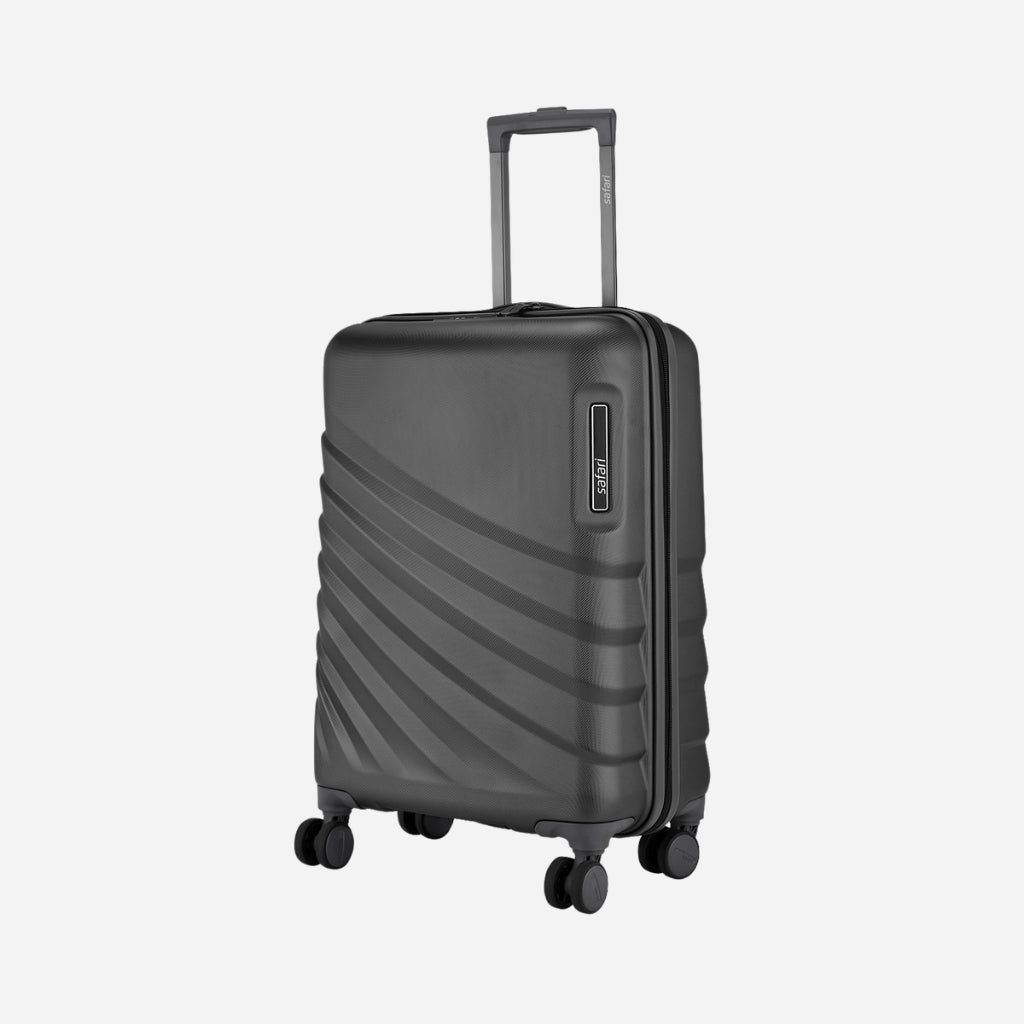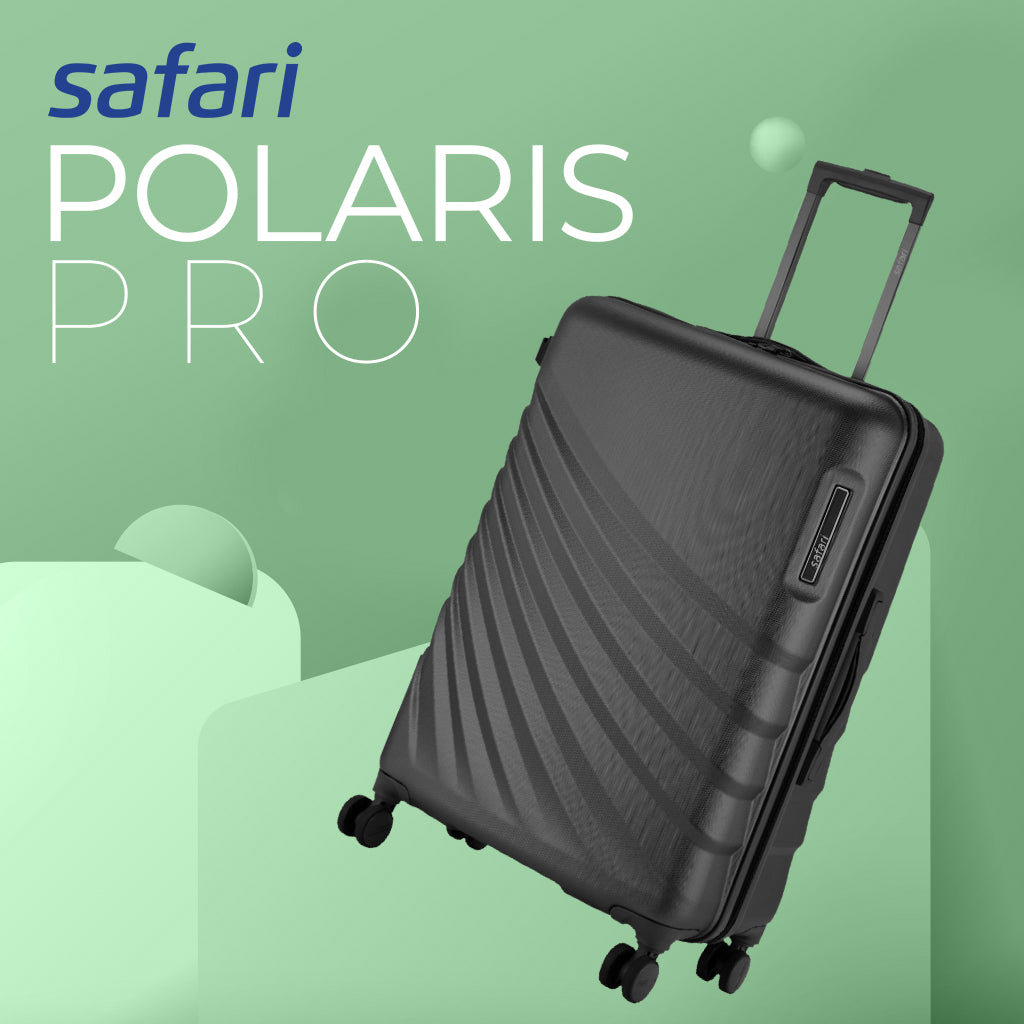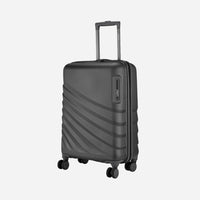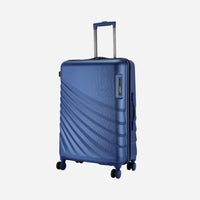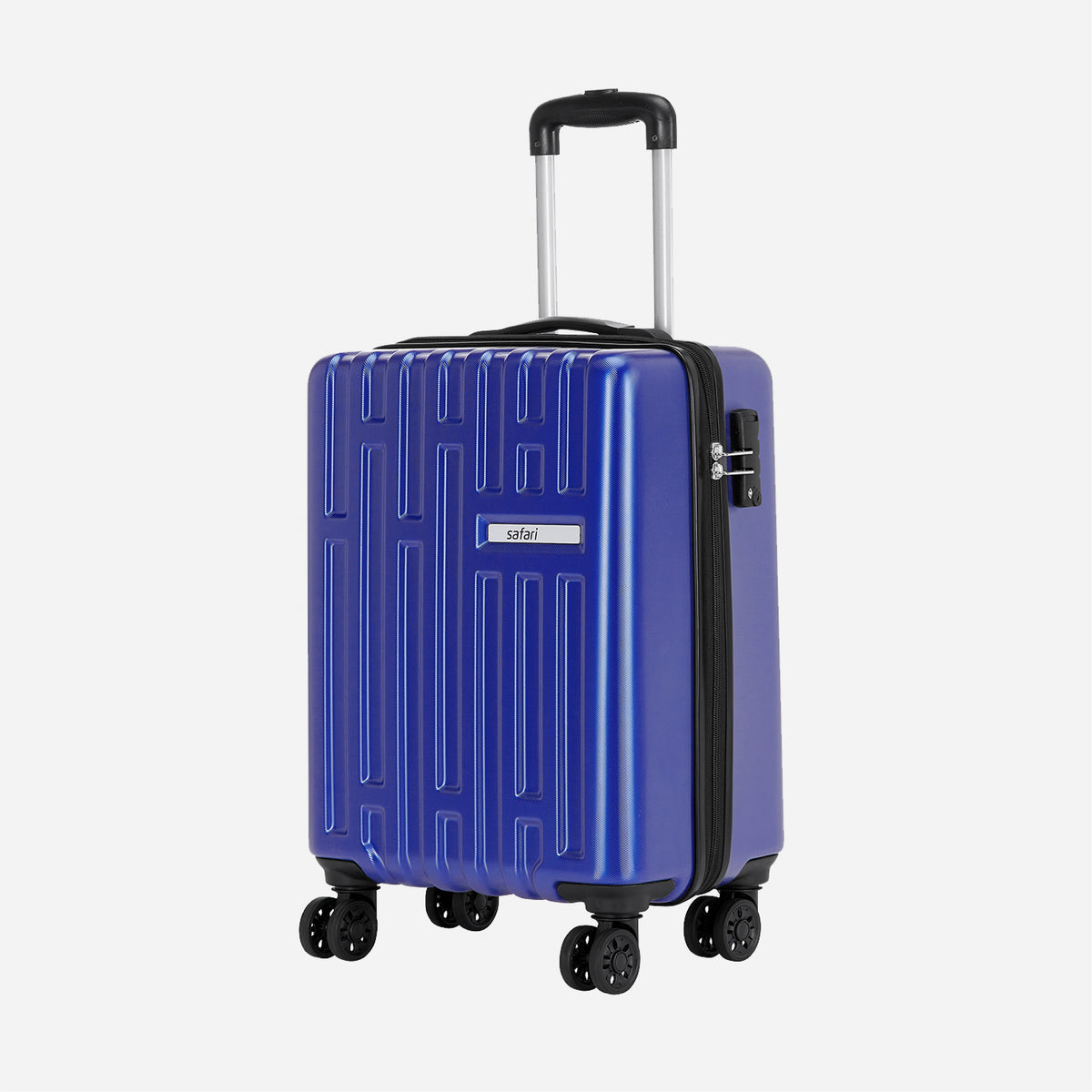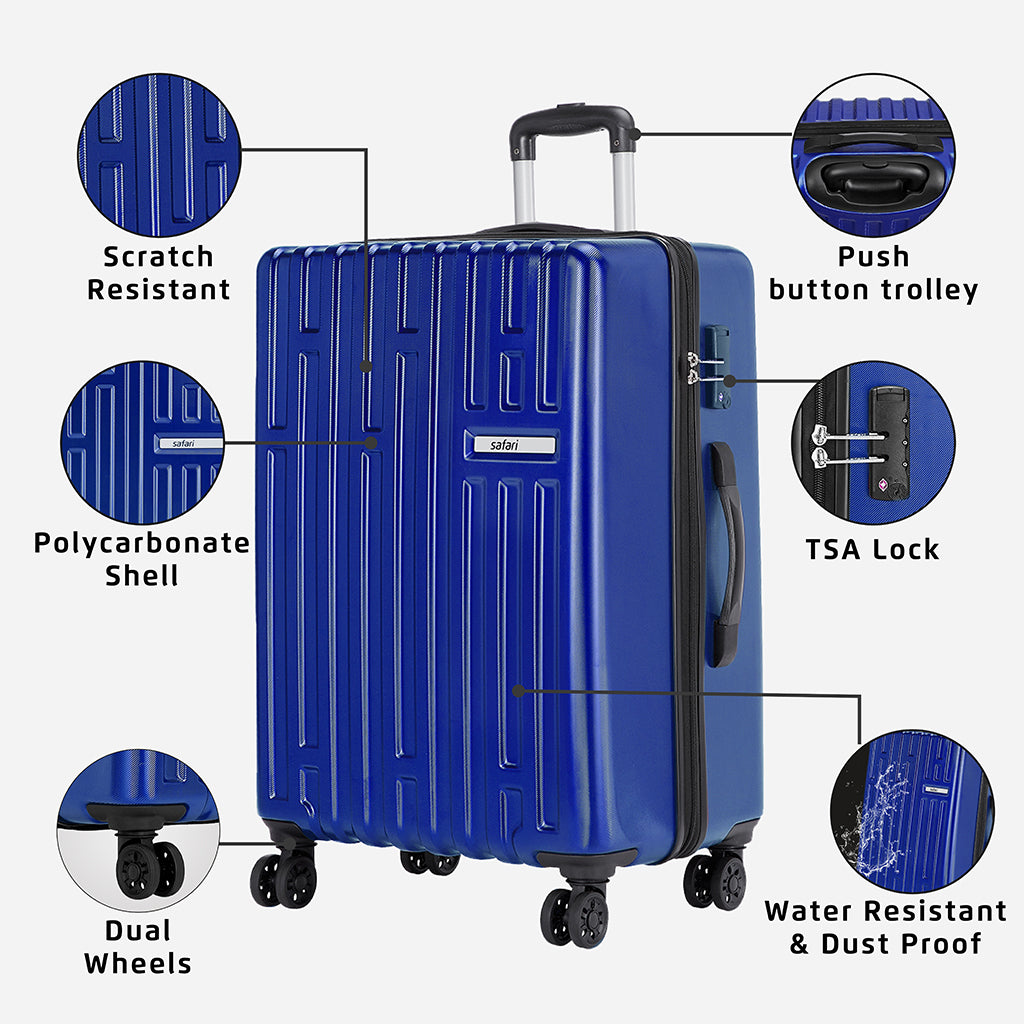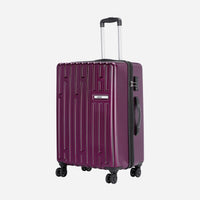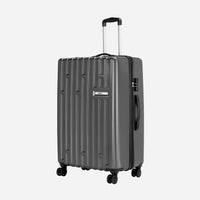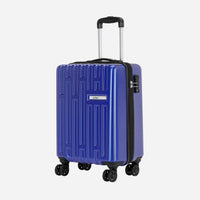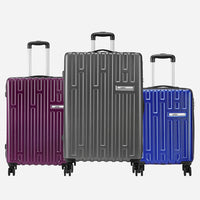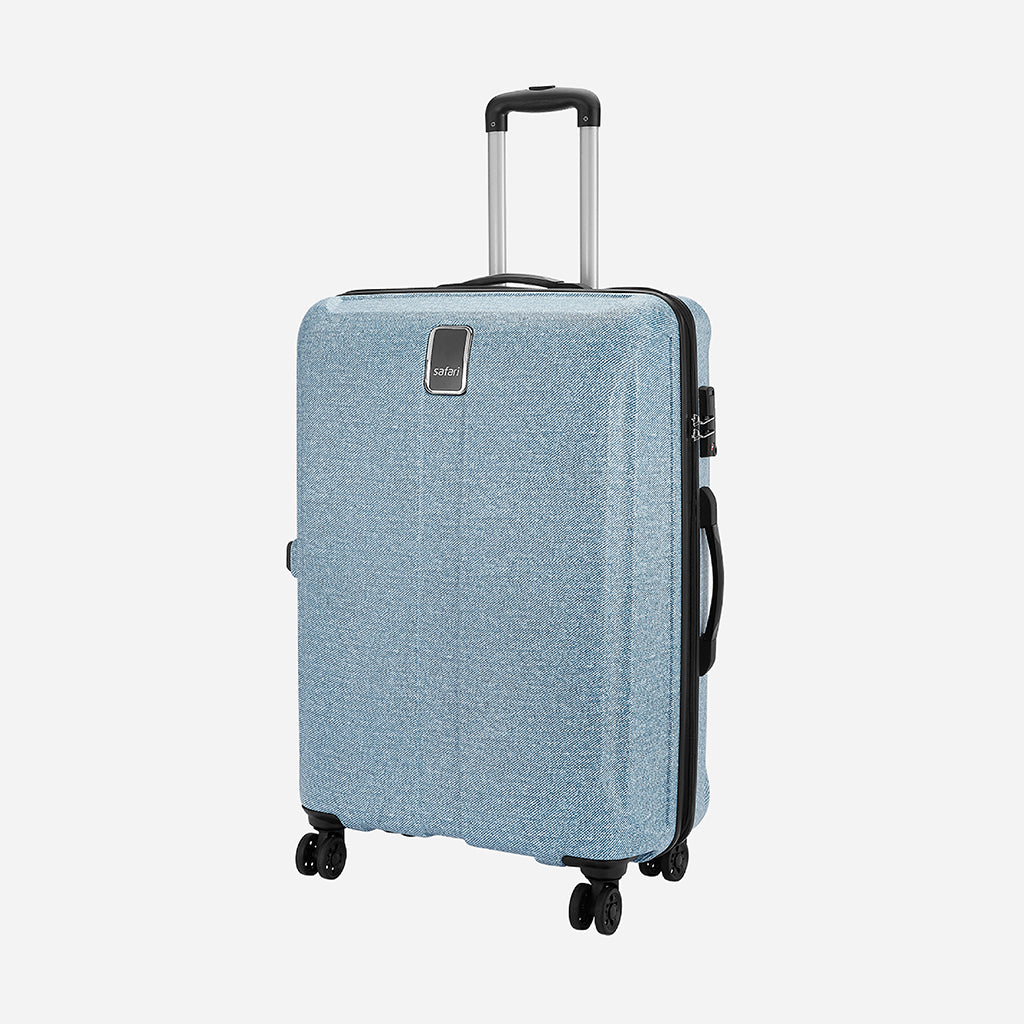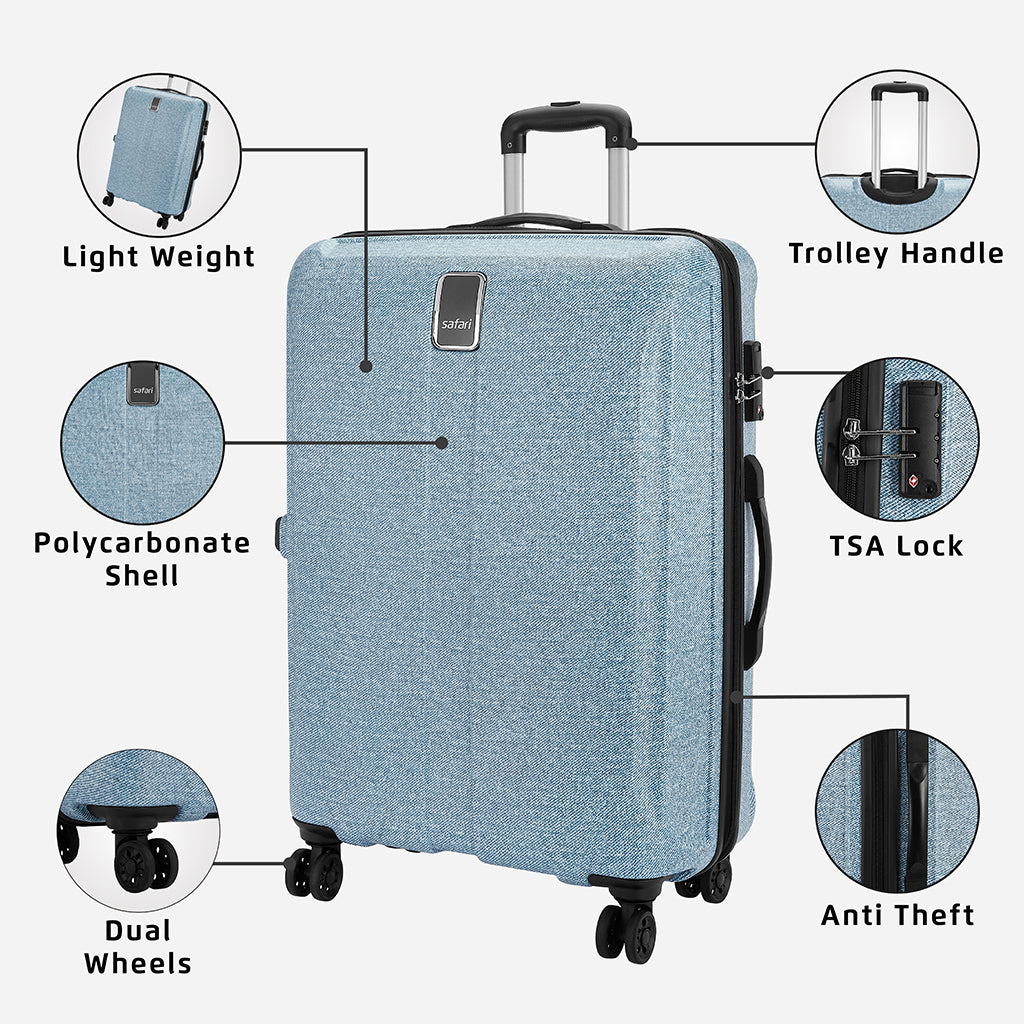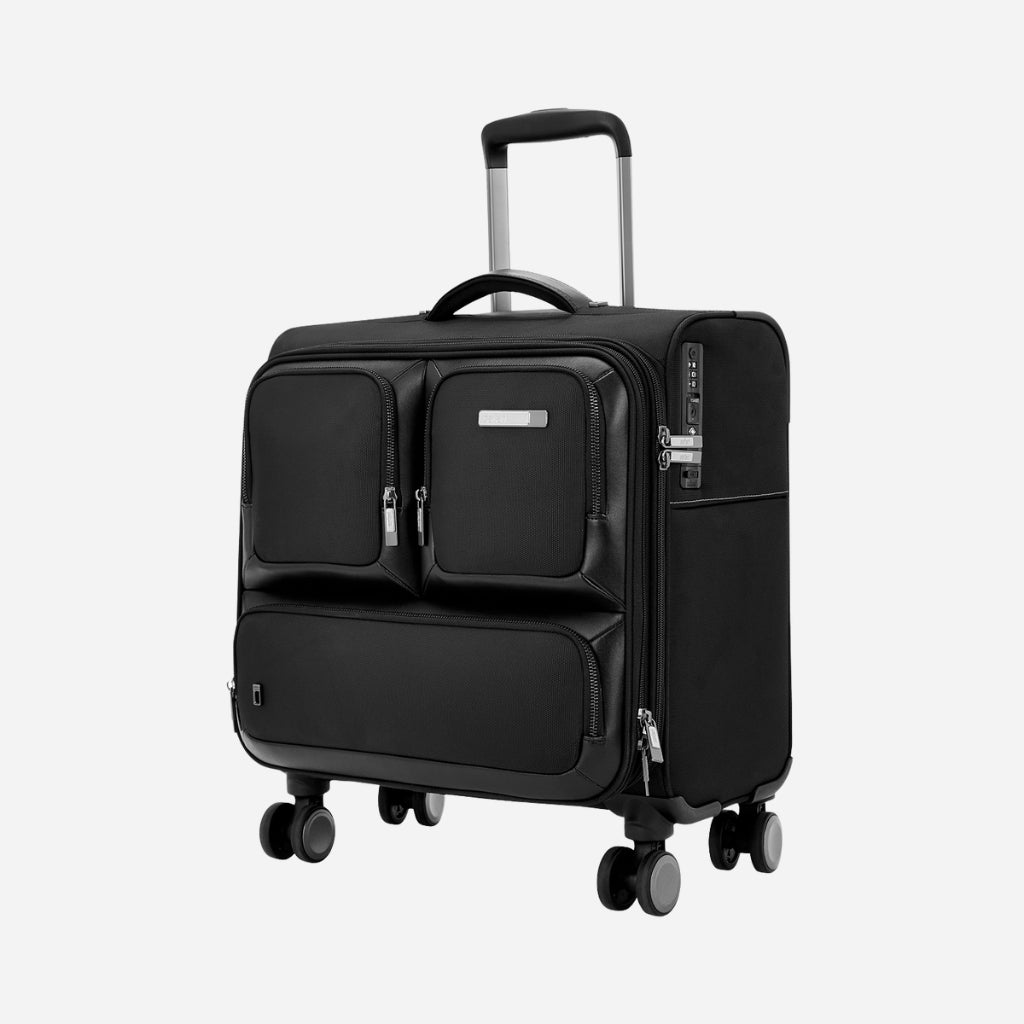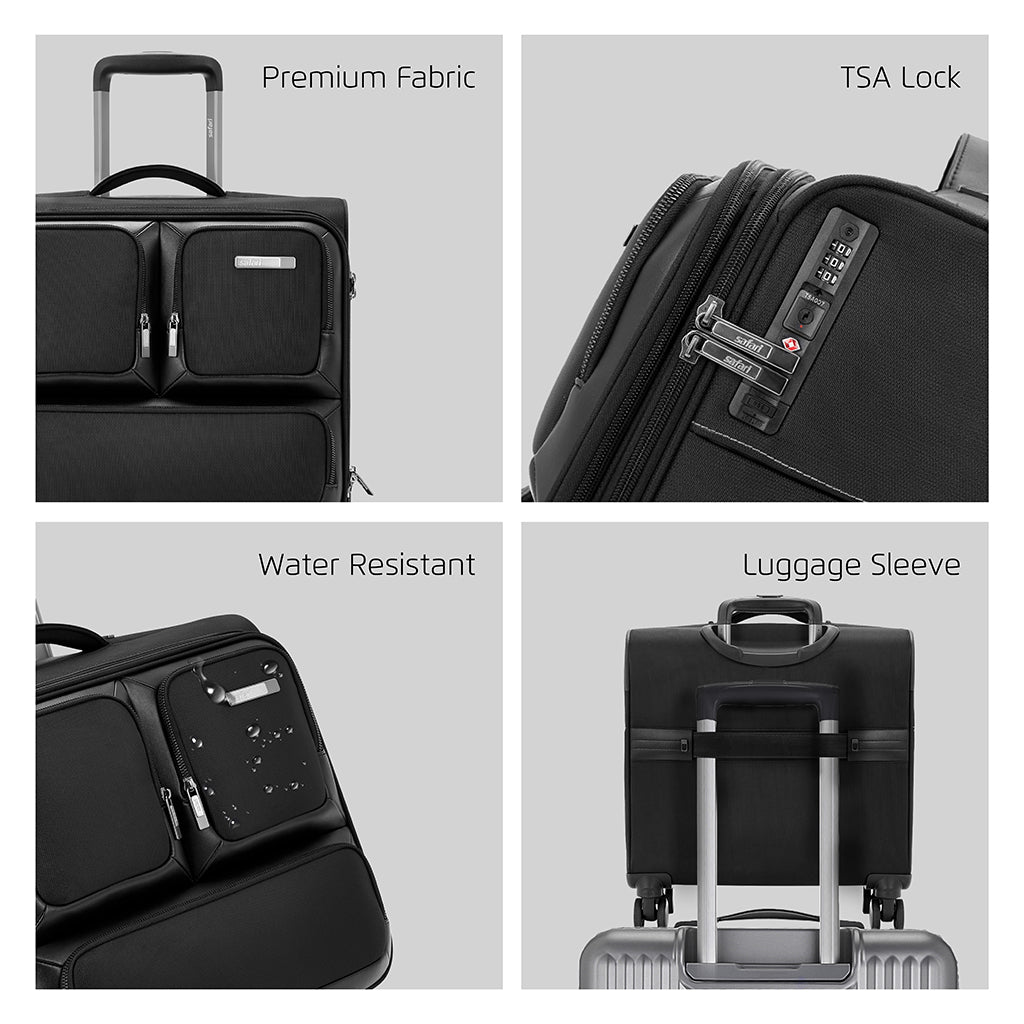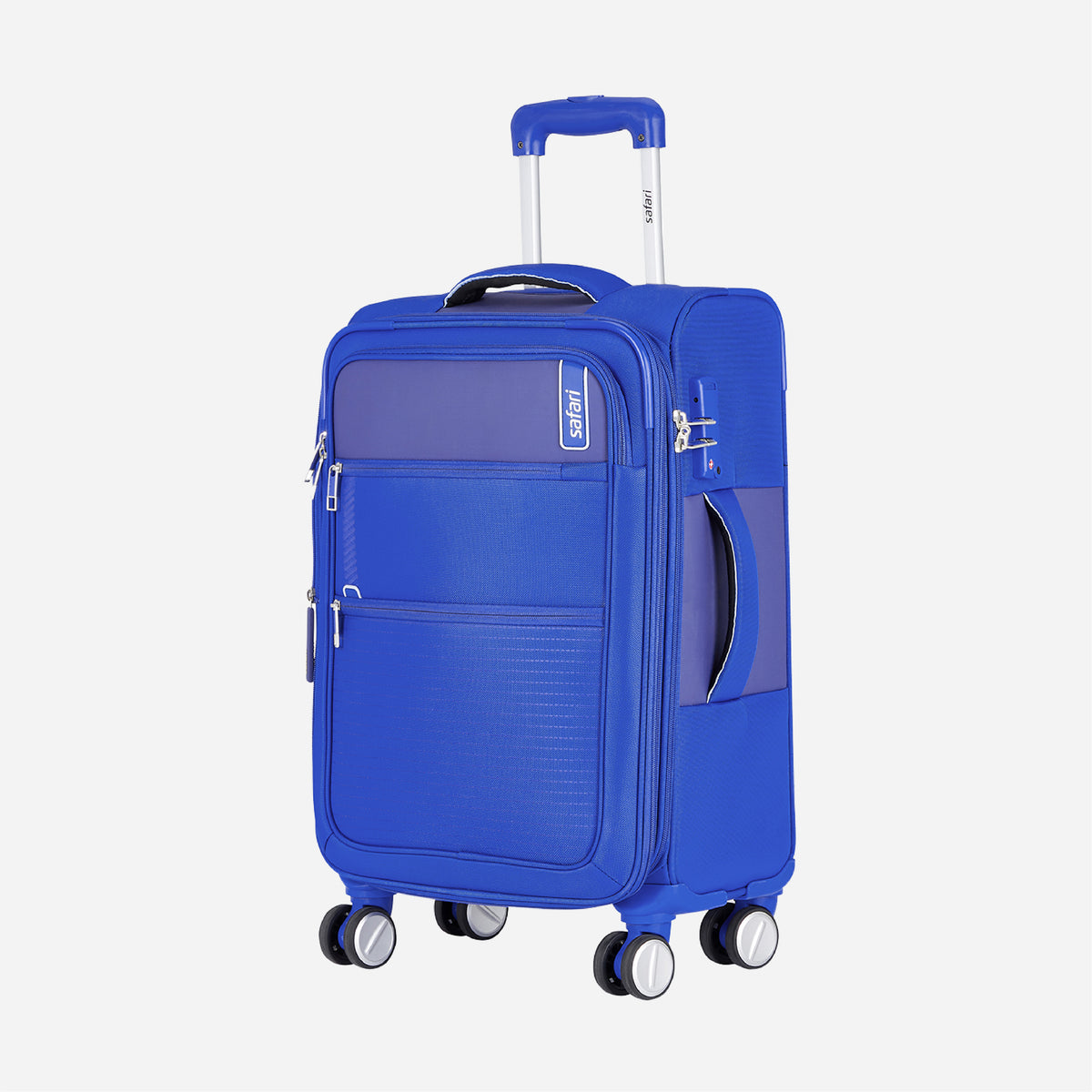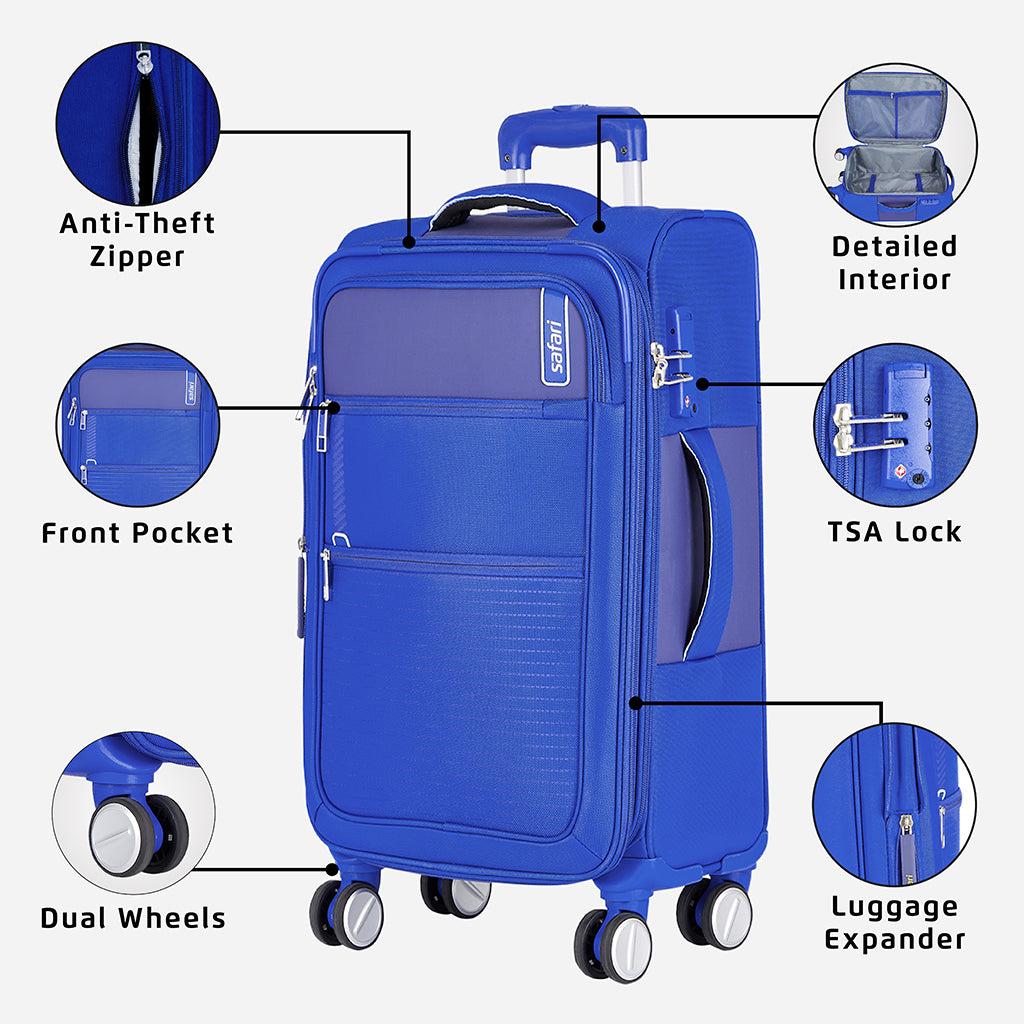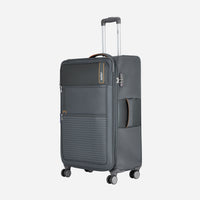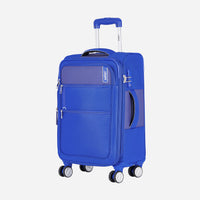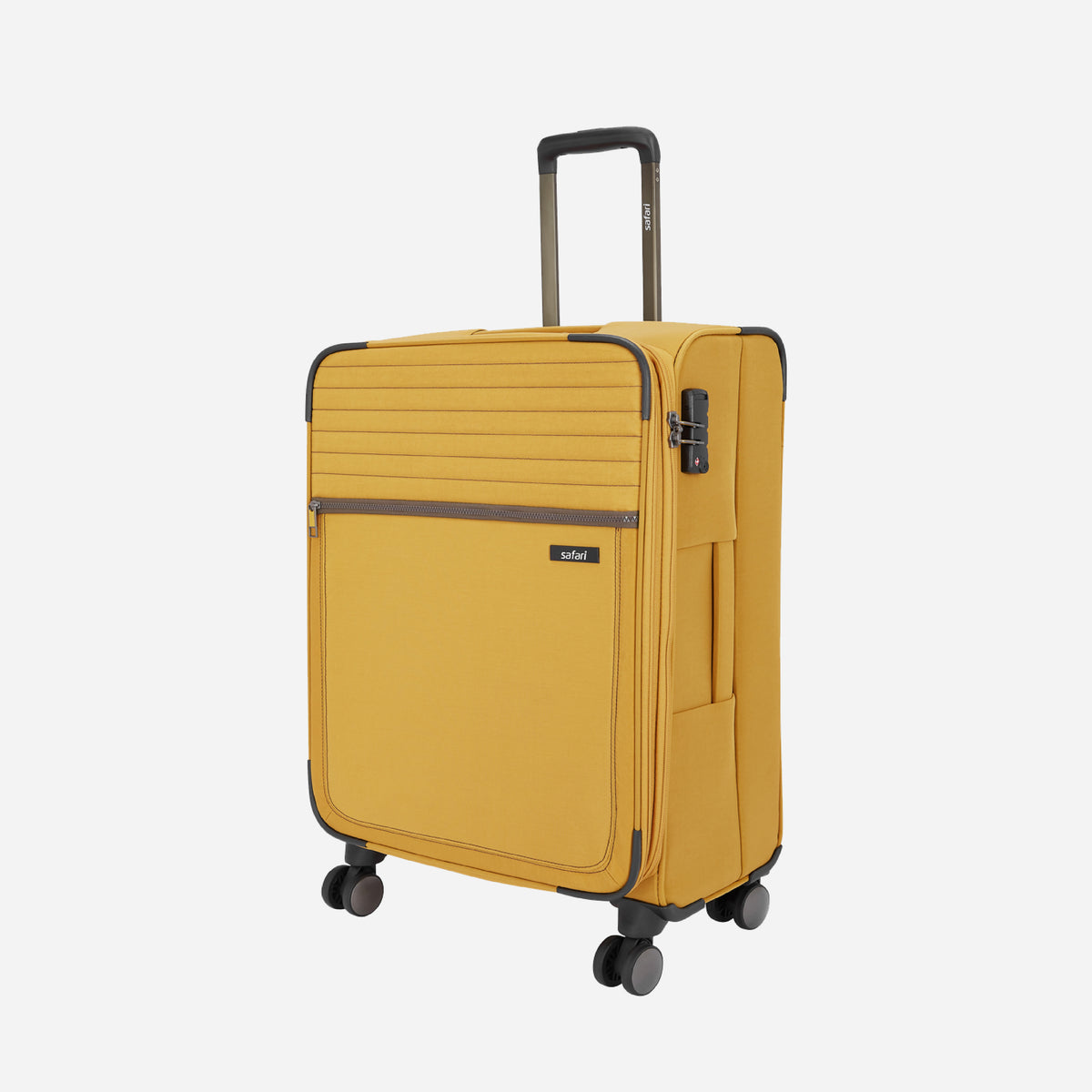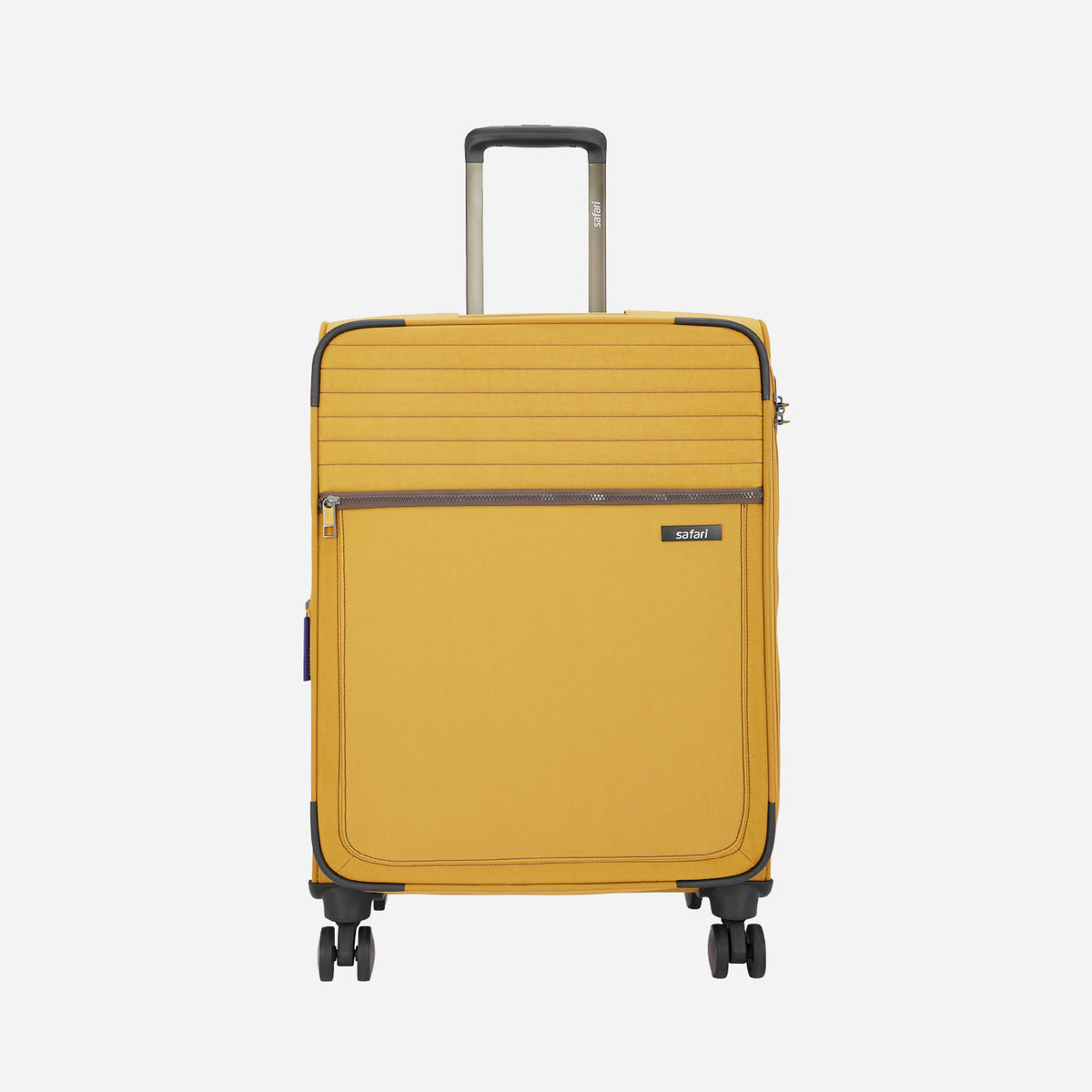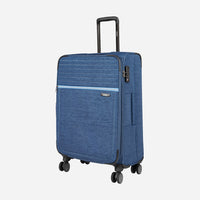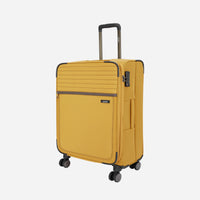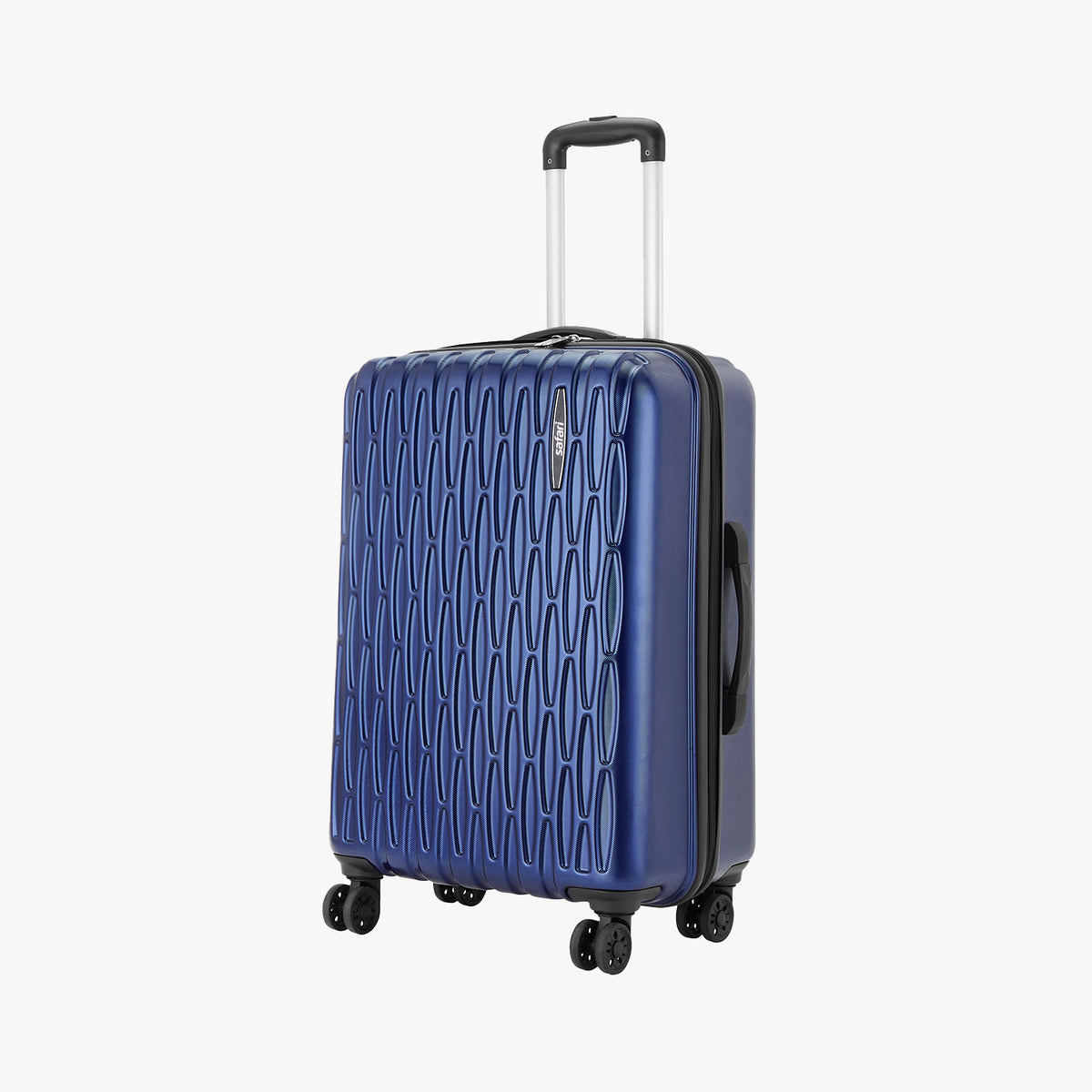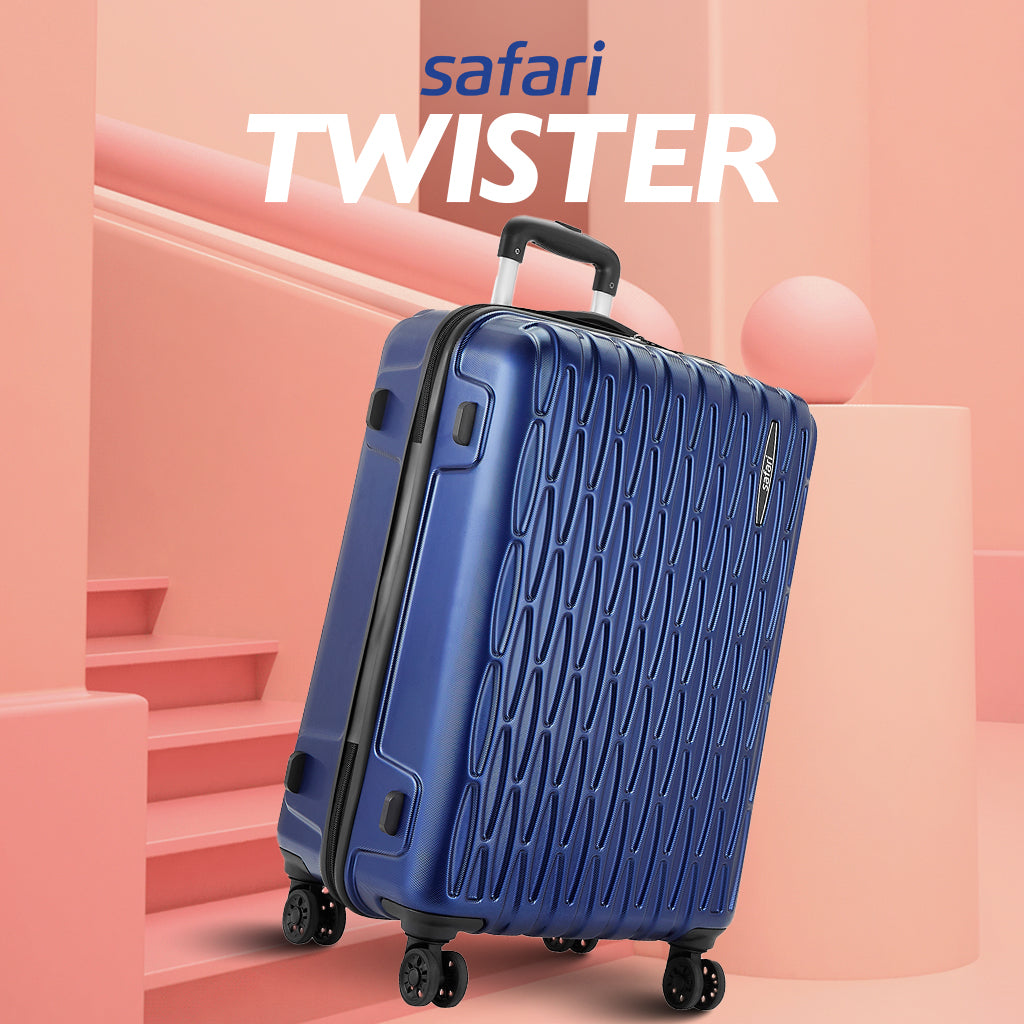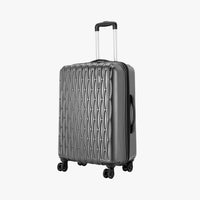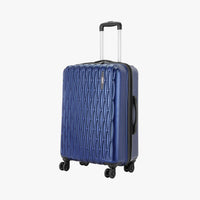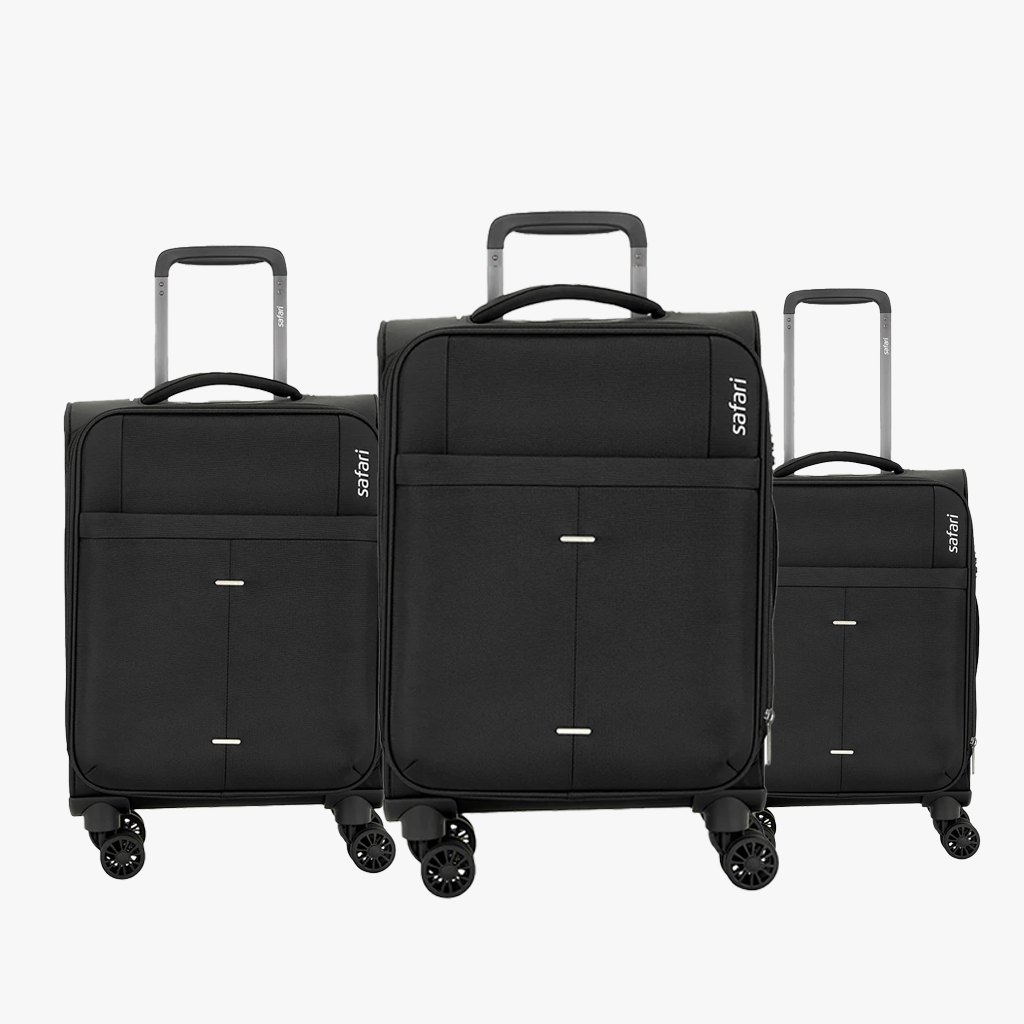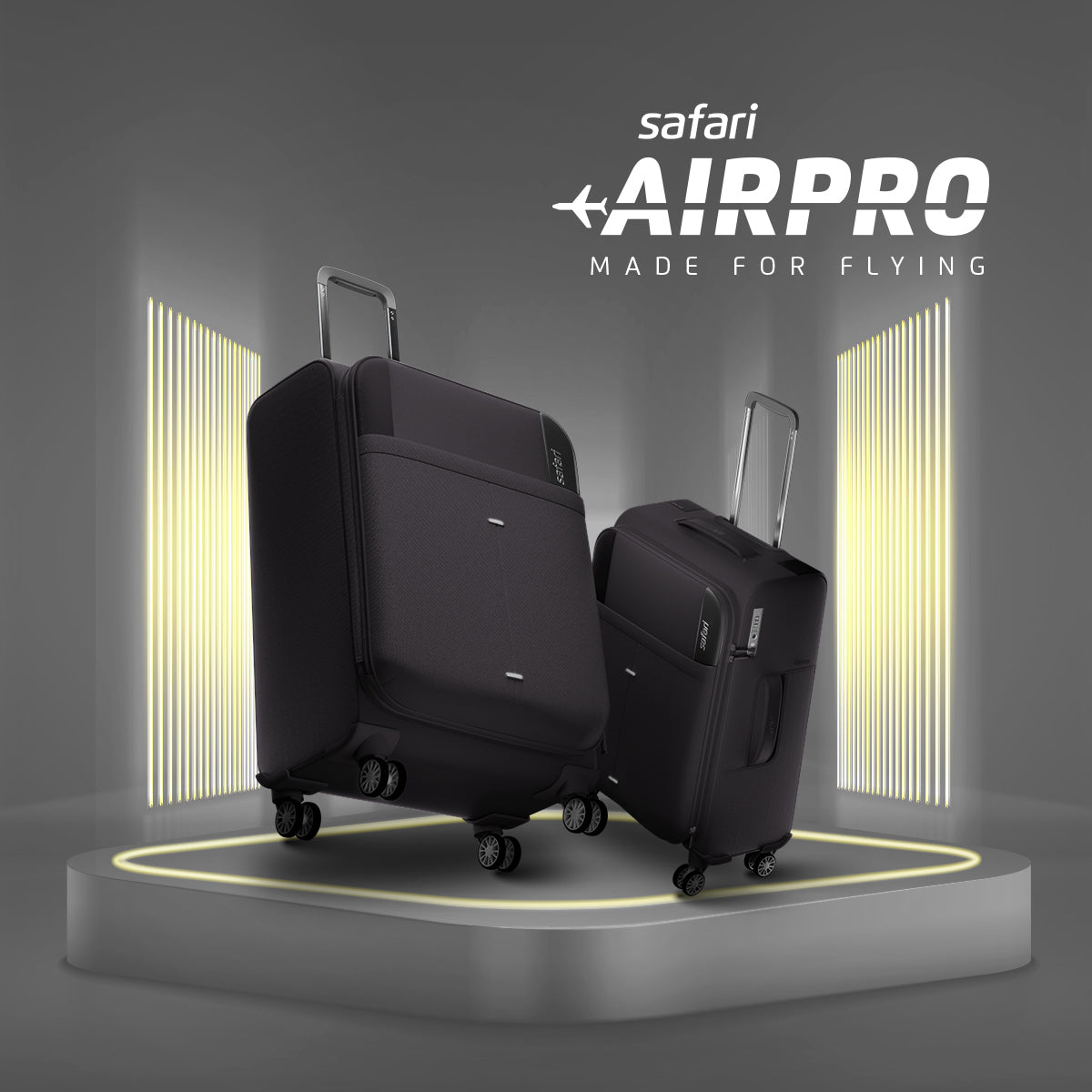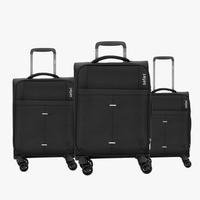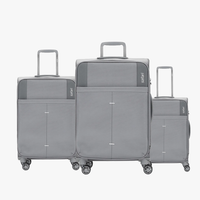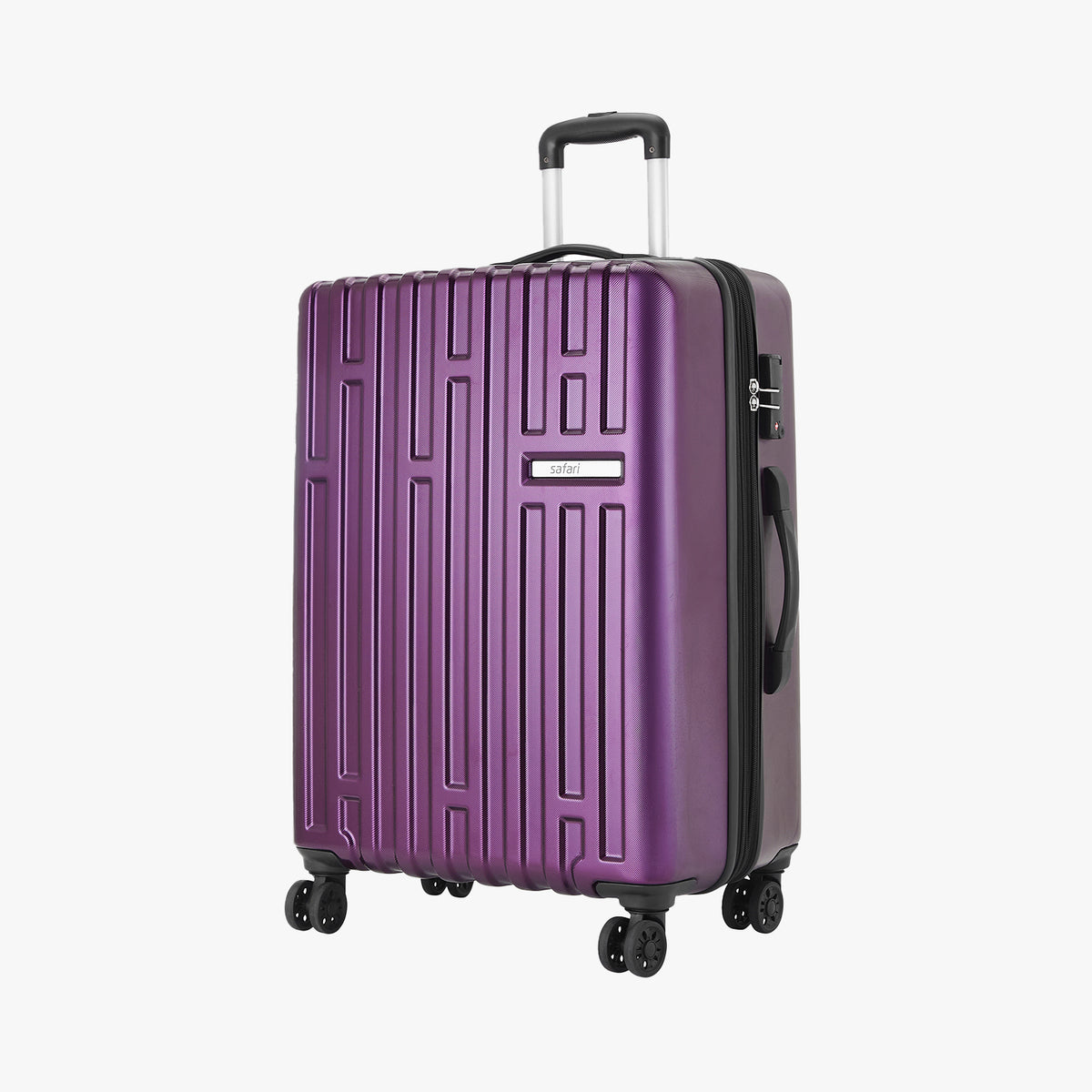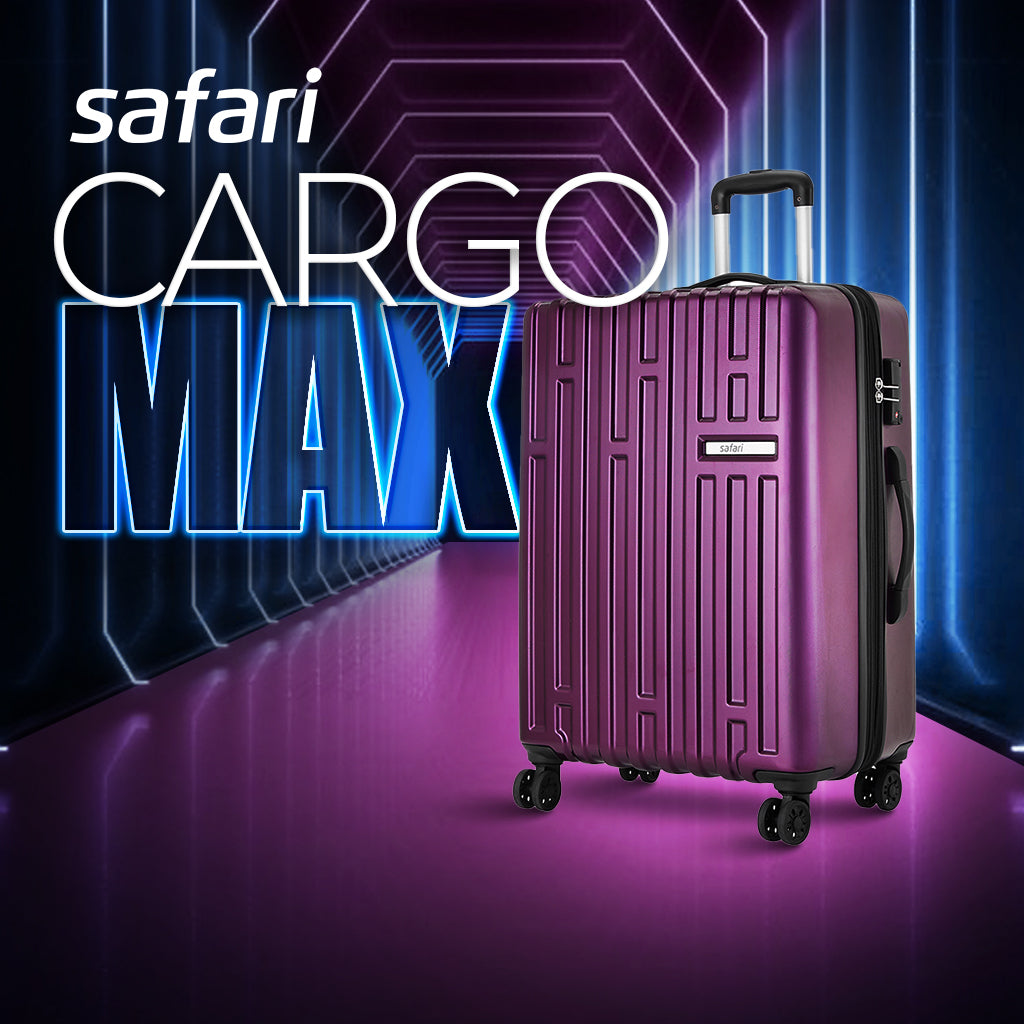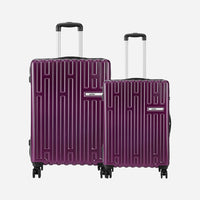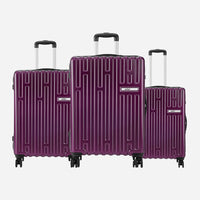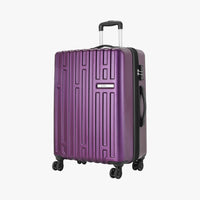Choosing the right luggage is crucial for a smooth and hassle free travel experience. When deciding between hard luggage vs soft luggage, travelers often weigh factors such as durability, flexibility, and storage capacity.
This article aims to provide a comprehensive comparison of hard and soft luggage, outlining the benefits and drawbacks of each. By understanding these differences, readers can make informed decisions about which type of luggage best suits their travel needs and preferences.
Hard Luggage
Hard luggage is typically made from materials like polycarbonate, ABS, or aluminum. These materials are chosen for their strength and durability, making hard luggage ideal for protecting fragile items, electronics, and important documents during travel.
Pros
- Durability: Hard luggage is resistant to impacts and rough handling, ensuring that your belongings remain intact even during turbulent travel conditions.
- Security: Many hard luggage pieces come with builtin locks and sturdy zippers, providing enhanced security for your valuables.
- Water Resistance: Hard luggage offers better protection against water and moisture, keeping your items dry even in wet conditions.
- Stable Shape: Hard luggage maintains its shape, protecting contents from being crushed or damaged.
- Ease of Cleaning: The smooth surfaces of hard luggage are easy to wipe down and keep clean.
Cons
- Weight: Hard luggage is generally heavier than soft luggage, which can be a drawback when it comes to weight restrictions and ease of handling.
- Flexibility: The rigid structure of hard luggage makes it less flexible, making it harder to fit into tight spaces or overhead compartments.
- Storage: Hard luggage can be bulkier to store when not in use, as it does not compress like soft luggage.
Understanding these pros and cons can help travelers decide whether hard luggage is the right choice for their specific needs and preferences.
Soft Luggage
Soft luggage is typically made from fabrics like nylon, polyester, or canvas. These materials are chosen for their lightweight and flexible properties, making soft luggage ideal for packing clothes and items that are less susceptible to damage.
Pros
- Lightweight: Soft luggage is generally lighter than hard luggage, making it easier to carry and maneuver through airports and other travel environments.
- Flexibility: The pliable nature of soft luggage allows it to fit into tight spaces and overhead compartments more easily than hard luggage.
- Expandability: Many soft luggage options feature expandable compartments, providing extra packing space when needed.
- External Pockets: Soft luggage often includes additional pockets for convenient storage and easy access to essentials such as travel documents, snacks, and small electronics.
- Versatility: Soft luggage can often be compressed or squashed to fit into spaces where hard luggage might not fit.
Cons
- Durability: Soft luggage is more prone to wear and tear, especially when exposed to rough handling or abrasive surfaces.
- Security: Soft luggage is easier to cut through and generally lacks the builtin locks found in many hard luggage options, making it less secure.
- Water Resistance: Soft luggage is less effective at protecting contents from water and moisture, which can be a concern in rainy conditions or if the luggage is exposed to liquids.
- Shape Stability: Unlike hard luggage, soft luggage can lose its shape and may not provide as much protection against items being crushed.
By weighing these pros and cons, travelers can better determine if soft luggage meets their specific travel needs and preferences.
Hard vs Soft Luggage: What is the Difference?

Material
- Hard Luggage: Hard luggage is constructed from rigid materials such as polycarbonate, ABS, or aluminum. These materials are chosen for their strength and ability to withstand significant impacts. Polycarbonate, in particular, is known for its lightweight yet durable properties, while aluminum offers a premium, sturdy build that is resistant to damage.
- Soft Luggage: Soft luggage is made from flexible fabrics like nylon, polyester, or canvas. These materials are selected for their lightweight nature and flexibility. Nylon and polyester are particularly popular due to their durability and resistance to abrasions, while canvas offers a more classic, rugged look and feel.
Durability
- Hard Luggage: The rigid construction of hard luggage provides superior protection against impacts and rough handling. It is less likely to get damaged when subjected to the rigors of travel, making it ideal for transporting fragile items, electronics, and important documents
- Soft Luggage: While soft luggage is generally durable, it is more prone to wear and tear compared to hard luggage. The fabric can be susceptible to abrasions, punctures, and tears, especially when handled roughly or placed in the cargo hold with other heavy items.
Weight
- Hard Luggage: Hard luggage tends to be heavier due to its solid construction materials. While newer models made from polycarbonate are designed to be lightweight, they still typically weigh more than their soft counterparts.
- Soft Luggage: Soft luggage is generally lighter, making it easier to carry and maneuver. This can be a significant advantage when navigating through airports, lifting luggage into overhead compartments, or adhering to airline weight restrictions.
Security
- Hard Luggage: Hard luggage often comes equipped with builtin locks, providing enhanced security for your belongings. Many models feature TSA approved locks, which allow airport security to inspect your luggage without damaging the lock.
- Soft Luggage: Soft luggage typically relies on external locks or zippers for security. While zippers can be locked with padlocks, they are generally less secure than the integrated locks found on hard luggage and can be more easily tampered with.
Expandability
- Hard Luggage: Hard luggage generally lacks expandability. Its rigid structure does not allow for much flexibility in packing extra items, and external pockets are rare.
- Soft Luggage: Soft luggage often features expandable compartments and multiple external pockets. This flexibility allows travelers to increase packing capacity when needed and provides easy access to essentials such as travel documents, snacks, and small electronics.
Water Resistance
- Hard Luggage: Hard luggage provides better water resistance due to its solid, impermeable shell. This can be particularly advantageous in protecting your belongings from rain or spills.
- Soft Luggage: Soft luggage offers less water resistance compared to hard luggage. While some soft luggage is treated with water resistant coatings, it is generally more susceptible to water damage, making it less ideal in wet conditions.
By understanding these key differences, travelers can make more informed decisions when choosing between hard and soft luggage, ensuring that their choice aligns with their specific travel needs and preferences.
Hard vs Soft Luggage: Which is Better?
Choosing between hard and soft luggage requires considering multiple factors to determine which material best suits your travel needs. In this comparison, we've evaluated critical attributes like travel frequency, storage space, and weight limits to guide your decision. Ultimately, the choice between hard and soft luggage depends on your individual travel preferences and requirements.
Travel Frequency
If you travel often, the durability of hard luggage can be a significant advantage. Hard luggage is built to withstand frequent handling and rough treatment, protecting your belongings from potential damage. The robust construction of materials like polycarbonate and aluminum ensures that your luggage remains intact trip after trip, making it an ideal choice for regular travelers.
Storage Space
Soft luggage is typically easier to store in tight spaces, both at home and during travel. Its flexible fabric construction allows it to be compressed or squeezed into smaller compartments, such as overhead bins or under seats. This flexibility can be particularly useful for those who travel on budget airlines with limited cabin space or need to store their luggage in compact areas at home.
Weight Limits
When packing for flights with strict weight limits, the weight of the luggage itself becomes an important factor. Soft luggage is generally lighter than hard luggage, allowing you to pack more items without exceeding weight restrictions. This can be a crucial advantage for travelers who need to maximize their packing capacity while adhering to airline regulations.
Price
The cost of luggage varies widely, but soft luggage is often more affordable than hard luggage. While premium hard luggage made from materials like aluminum can be quite expensive, soft luggage made from durable fabrics like nylon or polyester can offer excellent value for money. However, it's essential to consider long term durability and potential replacement costs when evaluating the overall price.
Overall
When making a final decision, consider all the factors above. Frequent travelers may prioritize durability and protection, while occasional travelers might value lightweight and flexible options. Assess your specific travel needs, including the types of trips you take, the items you typically pack, and your budget constraints.
Final Recommendation
Ultimately, the best type of luggage depends on your individual travel preferences. If you prioritize durability and security for valuable or fragile items, hard luggage may be the better choice. On the other hand, if you need a lightweight, flexible, and more affordable option, soft luggage could be more suitable.
Brand Considerations
Leading luggage brands, such as Safari, offer both hard and soft luggage options to satisfy diverse travel needs. Safari is known for its wide range of high quality luggage products, catering to various preferences and requirements.
For those seeking a reliable and versatile luggage option, Safari provides an excellent selection of both hard and soft luggage. Whether you need the robust protection of hard luggage or the lightweight convenience of soft luggage, Safari has the right product to meet your needs in a lot of aesthetic options ranging from color coded luggage to printed trolley bags.
By carefully considering these factors and evaluating your personal travel requirements, you can choose the perfect luggage type to enhance your travel experience.
Tips on Usage of Hard and Soft Luggage
Understanding the best scenarios for using hard and soft luggage can help you make the most of your travel experience. Here are some tips on when to choose each type:
Best Case Scenarios for Hard Luggage
Checked Baggage
Hard luggage is ideal for protecting delicate and valuable items in checked baggage. Its rigid shell provides a sturdy barrier against impacts and rough handling, ensuring your belongings remain safe throughout the journey.
Long-Haul Travel
For long haul trips where luggage is likely to face rough handling, hard luggage offers superior durability. It can withstand the rigors of extended travel, multiple transfers, and the baggage handling process, keeping your items secure and intact.
Business Travel
Hard luggage is useful for carrying electronics and documents securely. Many hard suitcases come with builtin locks and sturdy zippers, providing an extra layer of security for your valuable items and important paperwork.
Best Case Scenarios for Soft Luggage
Carry-On Baggage
Soft luggage is perfect for carry-on due to its lightweight and flexible nature. It can be easily stowed in overhead compartments or under seats, making it convenient for quick access during the flight.
Short Trips
Soft luggage is ideal for short trips where ease of packing and maneuverability are priorities. Its expandable compartments and external pockets provide additional storage and quick access to essentials.
Adventure Travel
Soft luggage is suitable for trips involving varying transportation methods and tight storage spaces. Its flexibility allows it to fit into different spaces and its lightweight design makes it easier to carry during multileg journeys.
By choosing the right type of luggage for each travel scenario, you can enhance your travel experience, ensuring that your belongings are well protected, easy to access, and efficiently packed.
Parting Thoughts…
Choosing between hard and soft luggage ultimately depends on your individual needs and travel habits. Here is a quick recap of key points to consider:
Hard luggage is made from rigid materials like polycarbonate or aluminum, providing better protection and durability. Soft luggage is made from flexible fabrics like nylon or polyester, offering more flexibility and expandability.
Hard luggage excels in durability and is ideal for protecting fragile items, while soft luggage is more prone to wear and tear but offers more external pockets and expandability.
Soft luggage is generally lighter, making it easier to maneuver and carry.
Hard luggage often comes with built-in locks, providing enhanced security, whereas soft luggage typically relies on external locks or zippers.
Hard luggage offers better water resistance, protecting contents from moisture.
The best choice depends on your specific travel requirements. Frequent travelers or those carrying delicate items may prefer the robust protection of hard luggage, while those needing lightweight and flexible options might opt for soft luggage. Consider factors such as travel frequency, storage space, weight limits, and personal preferences when making your decision.
Ultimately, the right luggage can significantly enhance your travel experience by providing the perfect balance of convenience, security, and durability.
Frequently Asked Questions
Which trolley bag is better hard or soft?
The choice between hard and soft trolley bags depends on your travel needs. Hard luggage offers better protection and durability, while soft luggage is lighter and more flexible.
Do airlines prefer hard or soft luggage?
Airlines do not have a preference for hard or soft luggage. The choice is up to the traveler and what best suits their packing and travel needs.
Polycarbonate luggage is hard or soft?
Polycarbonate luggage is hard. It is known for its durability and resistance to impact.
Do hard suitcases crack easily?
High-quality hard suitcases, especially those made from materials like polycarbonate, are designed to withstand impacts and do not crack easily under normal conditions.
Are hard cases better than soft cases?
Hard cases offer better protection and security for fragile items, while soft cases provide more flexibility and expandability. The best choice depends on your specific travel needs and preferences.

 Return Request
Return Request
